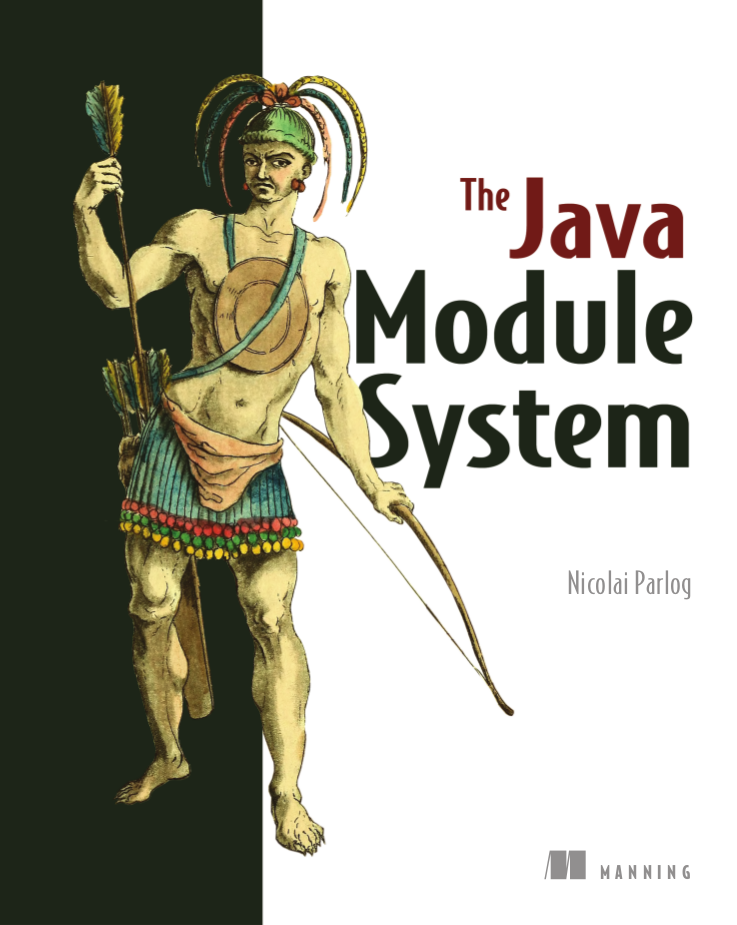public sealed interface Page
permits GitHubIssuePage, GitHubPrPage,
ExternalPage, ErrorPage {
// ...
}Java 22
Better Language, Better APIs, Better Runtime
Let’s get started!
this session focuses on Java 22
we can’t cover all details
⇝ go to youtube.com/@java for moreslides at slides.nipafx.dev/java-x
(hit "?" to get navigation help)ask questions any time
Lots to talk about!
Final features in Java 22:
unnamed patterns
FFM API
multi-source-file programs
Lots to talk about!
New previews features in Java 22:
statements before
superstream gatherers
class-file API
Why upgrade?
Costs of running on old versions:
support contract for Java
waning support in libraries / frameworks
Why upgrade?
Costs of not running on new versions:
lower productivity
less performance
less observability
less access to talent
bigger upgrade costs
Why upgrade?
Resistence is futile.
How to upgrade?
Preparations:
stick to supported APIs
stick to standardized behavior
stick to well-maintained projects
keep dependencies and tools up to date
stay ahead of removals (
jdeprscan)build on many JDK versions
How to upgrade?
Prepare by building on multiple JDK versions:
your baseline version
every supported version since then
latest version
EA build of next version
How to upgrade?
It’s not necessary to build …
… each commit on all versions
… the whole project on all versions
Build as much as feasible.
What about LTS?
Within OpenJDK, there is no LTS.
⇝ has no impact on features, reliability, etc.
It’s a vendor-centric concept
to offer continuous fixes
(usually for money).
You’re paying not to get new features.
What about LTS?
Java 22
| Final Features |
| Unnamed Patterns |
| FFM API |
| Launch Multi-File Programs |
| New Preview Features |
Avoiding default in switch.
A simple app
Features:
scrapes GitHub projects
creates
Pageinstances:GitHubIssuePageGitHubPrPageExternalPageErrorPage
further processes pages
A simple app
Features:
display as interactive graph
compute graph properties
categorize pages by topic
analyze mood of interactions
process payment for analyses
etc.
A simple architecture?
How to implement features?
methods on
Page😧visitor pattern 😫
pattern matching 🥳
Pattern Matching
Pattern Matching
Approach:
make
Pagesealedimplement features as methods outside of
Pageaccept
Pageparameters andswitchover itavoid
defaultbranch for maintainability
Sealed Page
Sealed types limit inheritance,
by only allowing specific subtypes.
Switch over Page
public void categorize(Page page) {
switch (page) {
case GitHubIssuePage is -> categorizeIssue(is);
case GitHubPrPage pr -> categorizePr(pr);
case ExternalPage ext -> categorizeExternal(ext);
case ErrorPage err -> categorizeError(err);
}
}Maintainability
Unlike an if-else-if-chain,
a pattern switch needs to be exhaustive.
Fulfilled by:
switching over a sealed types
a
caseper subtypeavoiding the
defaultbranch
⇝ Adding a new subtype causes compile error!
New Page Type
If GitHubCommitPage is added:
public void categorize(Page page) {
// error:
// "the switch statement does not cover
// all possible input values"
switch (page) {
case GitHubIssuePage is -> categorizeIssue(is);
case GitHubPrPage pr -> categorizePr(pr);
case ExternalPage ext -> categorizeExternal(ext);
case ErrorPage err -> categorizeError(err);
}
}Avoiding Default
Sometimes you have "defaulty" behavior:
public void categorize(Page page) {
switch (page) {
case GitHubIssuePage is -> categorizeIssue(is);
case GitHubPrPage pr -> categorizePr(pr);
default -> { }
}
}But we need to avoid default!
Avoiding Default in Java 21
Write explicit branches:
public void categorize(Page page) {
switch (page) {
case GitHubIssuePage is -> categorizeIssue(is);
case GitHubPrPage pr -> categorizePr(pr);
// duplication 😢
case ErrorPage err -> { };
case ExternalPage ext -> { };
};
}This is the state-of-the-art in Java 21
(without preview features).
Avoiding Default in Java 22
Use _ to combine "default branches":
public void categorize(Page page) {
switch (page) {
case GitHubIssuePage is -> categorizeIssue(is);
case GitHubPrPage pr -> categorizePr(pr);
case ErrorPage _, ExternalPage _ -> { };
};
}⇝ Default behavior without default branch. 🥳
More
Java 22
| Final Features |
| Unnamed Patterns |
| FFM API |
| Launch Multi-File Programs |
| New Preview Features |
Cutting the Isthmus between Java and native code.
Foreign memory
Storing data off-heap is tough:
ByteBufferis limited (2GB) and inefficientUnsafeis… unsafe and not supported
Foreign-memory API
Panama introduces safe and performant API:
control (de)allocation:
Arena,MemorySegment,SegmentAllocatorto access/manipulate:
MemoryLayout,VarHandle
Foreign-memory API
// create `Arena` to manage off-heap memory lifetime
try (Arena offHeap = Arena.ofConfined()) {
// [allocate off-heap memory to store pointers]
// [do something with off-heap data]
// [copy data back to heap]
} // off-heap memory is deallocated hereForeign-memory API
Allocate off-heap memory to store pointers:
String[] javaStrings = { "mouse", "cat", "dog" };
// Arena offHeap = ...
MemorySegment pointers = offHeap.allocateArray(
ValueLayout.ADDRESS, javaStrings.length);
for (int i = 0; i < javaStrings.length; i++) {
// allocate off-heap & store a pointer
MemorySegment cString = offHeap
.allocateUtf8String(javaStrings[i]);
pointers
.setAtIndex(ValueLayout.ADDRESS, i, cString);
}Foreign-memory API
Copy data back to heap:
// String[] javaStrings = ...
// MemorySegment pointers =
for (int i = 0; i < javaStrings.length; i++) {
MemorySegment cString = pointers
.getAtIndex(ValueLayout.ADDRESS, i);
javaStrings[i] = cString.getUtf8String(0);
}Foreign functions
JNI isn’t ideal:
involves several tedious artifacts (header file, impl, …)
can only interoperate with languages that align
with OS/architecture the JVM was built fordoesn’t reconcile Java/C type systems
Foreign-function API
Panama introduces streamlined tooling/API
based on method handles:
jextract: generates method handles from header fileclasses to call foreign functions
Linker,FunctionDescriptor,SymbolLookup
Foreign-function API
// find foreign function on the C library path
Linker linker = Linker.nativeLinker();
SymbolLookup stdlib = linker.defaultLookup();
MethodHandle radixSort = linker
.downcallHandle(stdlib.find("radixsort"), ...);
String[] javaStrings = { "mouse", "cat", "dog" };
try (Arena offHeap = Arena.ofConfined()) {
// [move Java strings off heap]
// invoke foreign function
radixSort.invoke(
pointers, javaStrings.length,
MemorySegment.NULL, '\0');
// [copy data back to heap]
}Finally final!
Java 22 finalizes the FFM API, but there’s more to do:
user-friendly and performant mapping from
native memory to Java records/interfacesimproving jextract and surrounding tooling
And more.
More
📝 JEP 454
🎥 Project Panama - Foreign Function & Memory API (Maurizio Cimadamore)
Java 22
| Final Features |
| Unnamed Patterns |
| FFM API |
| Launch Multi-File Programs |
| New Preview Features |
Keeping Java approachable.
A Mature Ecosystem
Java is very mature:
refined programming model
detailed toolchain
rich ecosystem
But this can make it hard to learn for new (Java) developers.
Approachable Java
Java needs to be approachable:
for kids
for students
for the frontend dev
for ML/AI folks
etc.
Java needs an on-ramp for new (Java) developers!
On-Ramp to Java
On-ramp:
simplified
mainmethod and classsingle-source-file execution
multi-source-file execution
Simpler Code
Remove requirement of:
String[] argsparametermainbeing staticmainbeing publicthe class itself
// smallest viable Main.java
void main() {
System.out.println("Hello, World!");
}[Preview in Java 22 — JEP 463]
Single-File Execution
Multi-File Execution
The program can expand:
MyFirstJava
├─ Main.java
├─ Helper.java
└─ Lib
└─ library.jarRun with:
java -cp 'Lib/*' Main.java[Introduced in Java 22 — JEP 458]
Progression
Natural progression:
start with
main()need arguments? ⇝ add
String[] argsneed to organize code? ⇝ add methods
need shared state? ⇝ add fields
need more functionality? ⇝ explore JDK APIs
even more? ⇝ explore simple libraries
need more structure? ⇝ split into multiple files
even more ⇝ use visibility & packages
Doesn’t even have to be that order!
More
Java 22
| Final Features |
| New Preview Features |
| Statements Before Super |
| Stream Gatherers |
| Class-File API |
A quality-of-life improvement.
Constructor Chaining
With multiple constructors, it’s good practice
to have one constructor that:
checks all arguments
assigns all fields
Other constructors just forward (if possible).
Constructor Chaining
class Name {
private final String first;
private final String last;
Name(String first, String last) {
// [... checks for null, etc. ...]
this.first = first;
this.last = last;
}
Name(String last) {
this("", last);
}
}Inheritance
With superclasses, chaining is enforced:
class ThreePartName extends Name {
private final String middle;
ThreePartName(
String first, String middle, String last) {
// doesn't compile without this call
super(first, last);
this.middle = middle;
}
}Limitations
But:
Java allows no statements before
super(…) / this(…)!
Why?
No statements before super(…) / this(…):
superclass should be initialized
before subclass runs any code
⇝ no code beforesuper(…)code before
this(…)would
run beforesuper(…)
⇝ no code beforethis(…)
Limitations
This is inconvenient when you want to:
check arguments
prepare arguments
split/share arguments
Splitting Arguments
class Name {
// fields and constructor as before
Name(String full) {
// does the same work twice
this(
full.split(" ")[0],
full.split(" ")[1]);
}
}Splitting Arguments
class Name {
// fields and constructor as before
// avoids two splits but "costs"
// duplicated argument validation
Name(String full) {
String[] names = full.split(" ");
// [... checks for null, etc. ...]
this.first = names[0];
this.last = names[1];
}
}Splitting Arguments
class Name {
// fields and constructor as before
// avoids two splits but "costs"
// an additional constructor
Name(String full) {
this(full.split(" "));
}
private Name(String[] names) {
this(names[0], names[1]);
}
}Splitting Arguments
class Name {
// fields and constructor as before
// avoids two splits but "costs"
// an additional construction protocol
static Name fromFullName(String full) {
String[] names = full.split(" ");
return new Name(names[0], names[1]);
}
}Limitations - Record Edition
To enforce a uniform construction protocol:
Records require all custom constructors
to (eventually) call the canonical constructor.
Limitations - Record Edition
record Name(String first, String last) {
// nope
Name(String full) {
String[] names = full.split(" ");
// [... checks for null, etc. ...]
this.first = names[0];
this.last = names[1];
}
}Splitting Arguments
What we want to write:
record Name {
Name(String full) {
String[] names = full.split(" ");
this(names[0], names[1]);
}
}(Analogous for classes.)
Statements Before …
Java 22 previews statements
before super(…) and this(…).
Great to…
Check Arguments
class ThreePartName extends Name {
private final String middle;
ThreePartName(
String first, String middle, String last) {
// can't have a middle name without a first name
requireNonNullNonEmpty(first);
super(first, last);
this.middle = middle;
}
}Prepare Arguments
class ThreePartName extends Name {
private final String middle;
ThreePartName(
String first, String middle, String last) {
// shorten first if middle is given
var short1st = middle.length() == 1
? first.substring(0, 1)
: first;
super(first, last);
this.middle = middle;
}
}Split Arguments
class ThreePartName extends Name {
private final String middle;
ThreePartName(String full) {
// split "first middle last" on space (once 🙌🏾)
var names = full.split(" ");
super(names[0], names[2]);
this.middle = names[1];
}
}More
Java 22
| Final Features |
| New Preview Features |
| Statements Before Super |
| Stream Gatherers |
| Class-File API |
Like collect, but intermediate.
Missing Stream Ops
Streams are great, but some
intermediate operations are missing:
sliding windows
fixed groups
take-while-including
scanning
increasing sequences
etc.
Missing Terminal Ops
Streams also don’t have all possible terminal operations.
Instead:
generalization for terminal ops ⇝ collectors
a few implementations, e.g.
Collectors.toSet()extension point for them:
Stream::collect
Let’s do the same for intermediate ops!
Introducing Gatherers
The gatherers API consists of:
generalization for intermediate ops ⇝ gatherers
a few implementations, e.g.
Gatherers.scan(…)extension point for them:
Stream::gather
Stream.of("A", "C", "F", "B", "S")
.gather(scan(...))
.forEach(System.out::println);Gatherer Building Blocks
One required building block:
- Integrator
accepts
(state, element, downstream)has the task to combine
stateandelementto update the
stateto emit 0+ result(s) to
downstream
Integrator Example
Behaves transparently:
static <T> Gatherer<T, ?, T> transparent() {
Integrator<Void, T, T> integrator = (_, el, ds)
-> ds.push(el);
return Gatherer.of(integrator);
}Integrator Example
Reimplements Stream::map:
static <T, R> Gatherer<T, ?, R> map(Function<T, R> f) {
Integrator<Void, T, R> integrator = (_, el, ds) -> {
R newEl = f.apply(el);
return ds.push(newEl);
};
return Gatherer.of(integrator);
}Gatherer Building Blocks
Three optional building blocks:
- Initializer:
creates instance(s) of
state- Finisher:
accepts
(state, downstream)emits 0+ element(s) to
downstream
- Combiner:
combines to
statesinto one
Fixed-Sized Groups
Create groups of fixed size:
stream input: "A", "C", "F", "B", "S"
output of
groups(2): ["A", "C"], ["F", "B"], ["S"]
We need:
an initializer to create empty group list
an integrator that emits when group is full
a finisher to emit incomplete group
Fixed-Sized Group Initializer
Supplier<List<T>> initializer = ArrayList::new;Fixed-Sized Group Integrator
Integrator<List<T>, T, List<T>> integrator =
(state, el, ds) -> {
state.add(el);
if (state.size() < size)
return true;
else {
var group = List.copyOf(state);
state.clear();
return ds.push(group);
}
};Fixed-Sized Group Finisher
BiConsumer<List<T>, Downstream<List<T>>> finisher =
(state, ds) -> {
var group = List.copyOf(state);
ds.push(group);
};Fixed-Sized Group Gatherer
static <T> Gatherer<T, ?, List<T>> groups(int size) {
Supplier<...> initializer = // ...
Integrator<...> integrator = // ...
BiConsumer<...> finisher = // ...
return Gatherer.ofSequential(
initializer, integrator, finisher);
}Fixed-Sized Group Gatherer
Using our gatherer:
Stream.of("A", "C", "F", "B", "S")
.gather(groups(2))
.forEach(System.out::println);
// [A, C]
// [F, B]
// [S]More
Java 22
| Final Features |
| New Preview Features |
| Statements Before Super |
| Stream Gatherers |
| Class-File API |
Unlocking easier Java updates.
Bytecode Basics
Bytecode is instruction set for JVM:
creating objects and arrays
copying variable values or references
between stack and registersinvoking methods
computing arithmetic operations
etc.
Bytecode Basics
Basic lifecycle:
generated by javac
stored in
.classfilesloaded, parsed, verified by class loader
executed by JVM
Bytecode Beyond Basics
In real life, much more happens:
generated by frameworks at build time
turned into machine code by JIT compiler
or Graal native imageprefetched by class-data sharing
analyzed by jdeps, SpotBugs, etc.
manipulated by agents and libraries
Bytecode Tools
Tooling:
libraries don’t manipulate bytecode themselves
they use a few tools
Big player is ASM
(direct or, e.g., via ByteBuddy or CGLIB).
Migration Pains
Updates:
bytecode has a level (e.g. 65 for Java 21)
tools can’t work with a higher level
than they were built for
This can block updates!
E.g. when compiling your code with Java 25 (level 69)…
Migration Pains
This is the reason for:
Before updating the JDK,
update all dependencies.
We want to move past that!
Class-File API
An API in Java that allows
analyzing and manipulating bytecode:
stable API in JDK
always up-to-date
When JDK is updated:
it may read new bytecodes
but that’s ok for most use cases
More
Java 22
In a few slides…
Java 22 Finalizes
Java 22 Continues
Java 22 Previews
Java 22
Not explosive like Java 21,
but no slouch either.
Continues Java’s evolution.
Get it at jdk.java.net/22.
So long…
More
Slides at slides.nipafx.dev⇜ Get my book!
Follow Nicolai
nipafx.dev/nipafx
Follow Java
inside.java // dev.java/java // /openjdk
Image Credits
all other images are copyrighted




